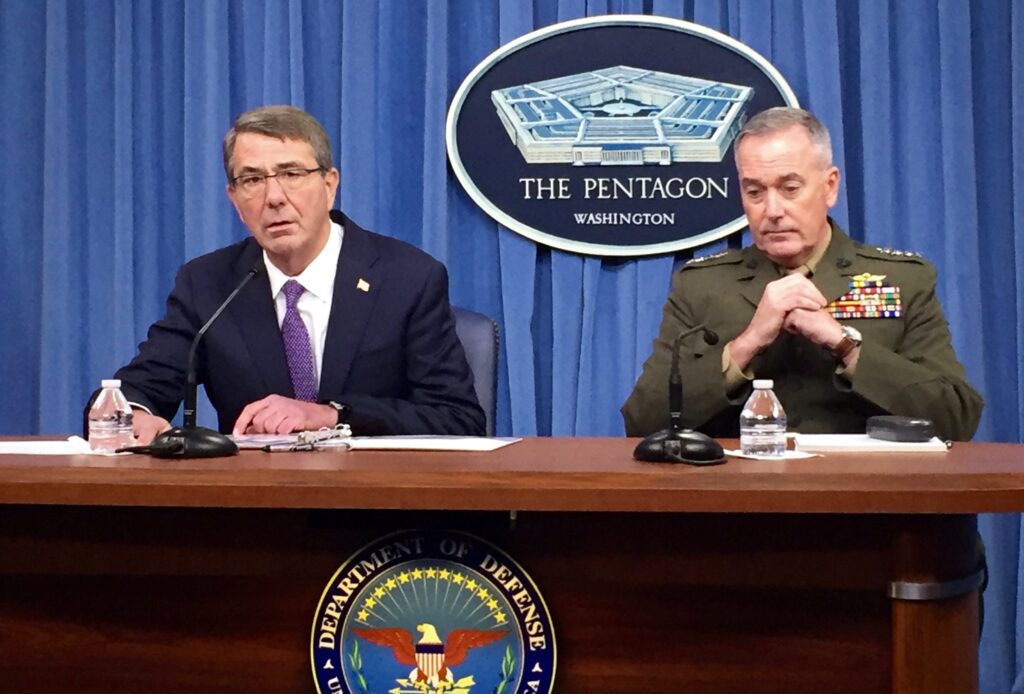PENTAGON: The United States and its allies have turned the tables on Daesh and the battle for Mosul is joined. While the battle will be grim and long, those opposed to the nihilists, murderers, rapists and apostates also known as ISIL now possess the momentum that had for so long been with the other side.
That was the gist of today’s press conference with Defense Secretary Ash Carter and Chairman of the Joint Chiefs Gen. Joe Dunford.
Does that mean the end to the struggle is in sight? No, Dunford made clear.
“We’ve started to affect their command and control in a negative way. I think we’ve begun to undermine the narrative. But there’s a lot of work that remains to be done,” he said. “So, I think the momentum is in our favor. I think there’s a lot of reasons for — for us to be optimistic about the next several months. But by no means would I say that we’re about to break the back of ISIL or that — that the fight is over.”
Carter offered a more detailed version of what is changing the momentum.
“First, we are systemically eliminating ISIL’s cabinet. Indeed, the U.S. military killed several key ISIL terrorists this week, including, we believe, Haji Imam who was an ISIL senior leader, serving as a finance minister and who is also responsible for some external affairs and plots,” Carter told reporters in the briefing room here. “This is the second senior ISIL leader we’ve successfully targeted this month, after confirming the death of ISIL’s so-called minister of war a short time ago.”
But the first thought that came to the mind of several reporters after Carter said this was — will decapitating Daesh — killing its leaders as we did with Al Qaeda — stop the organization? So an AP colleague asked him just that.
Carter took it head on. “Leaders — leaders can be replaced. However, these leaders have been around for a long time. They are senior, they’re experienced, and so eliminating them is an important objective and it achieves an important result,” he said, admitting it’s not the whole answer. “But they will be replaced and we’ll continue to go after their leadership and other aspects of their capability. So I would say it’s necessary. It’s not sufficient, but it’s important.”









